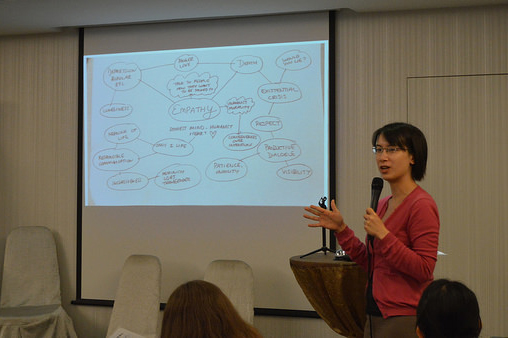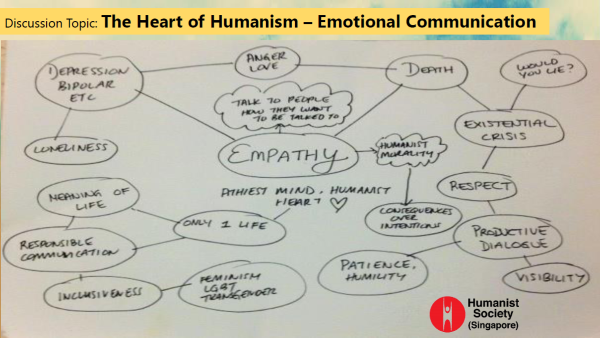
On the first day of the Asian Humanism Conference, participants broke into four groups to discuss four major questions based around the theme: Unity in Diversity. This is the third discussion.
Topic: Heart of Humanism – Emotional Communication
1. The group started by discussing how to talk to someone on his deathbed, or someone who is feeling sad in the midst of a crisis. The challenge lies in how to talk about emotions such as anger and love from a secular point of view to a person with a religious background.
2. The group came to a consensus that for effective emotional communication, the communication should be a respectful one. It would not be wise to argue with people who are on the deathbed or in the midst of a crisis, or belittle their belief. For example, you certainly do not want to tell a religious person on his deathbed that: “You are not going to heaven. You are going to die.” But at the same time, humanists should not lie to them.
3. How should humans react to such situations? For this group, discussions were inconclusive. In general, however, the group felt that communication should also be very contextualised and dependent on the humanist’s existing relationship with the person.
4. The group concluded that empathy should be a big part of such communication. Humanists should try to understand where others are coming from, and where are they, emotionally, in their life. Humanists need to empathise with the different situations that others go through.
5. In addition to empathy, respectfulness and honesty, the group said that visibility and patience is important. Having a physical presence will bring forth an emotional impact. The group also felt that the humanist belief that having only one life appears unpleasant and cold to the general public. The emotional side of atheists is also lacking in the public sphere and more needs to be done to show the emotional side of atheism.
During the QnA, one audience member raised an interesting question:
Other discussion summaries:





